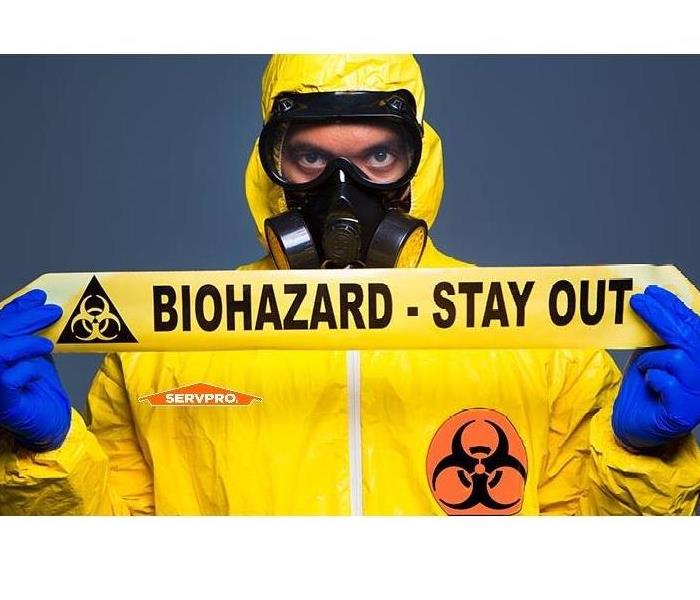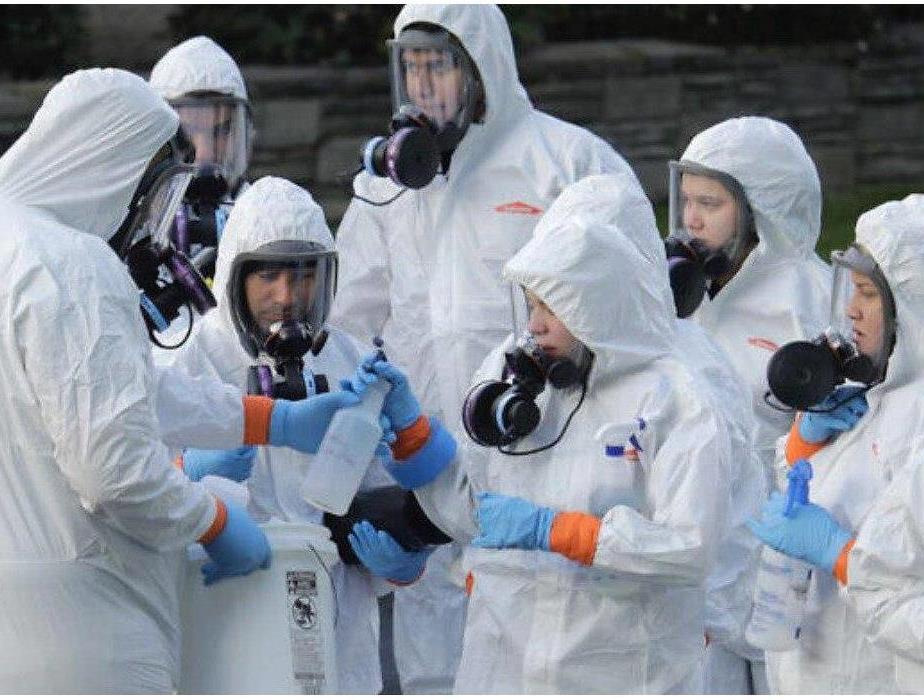What types of situations require a Biohazard Cleaning Specialist?
4/8/2024 (Permalink)
 We specialize in proper personal protection equipment and rigorous training to protect from exposure to infectious pathogens.
We specialize in proper personal protection equipment and rigorous training to protect from exposure to infectious pathogens.
Biohazards often present dangers unseen to the human eye. You may not think much about it, but blood spillage is a common biohazard because bloodborne pathogens such as MRSA, HIV, and Hepatitis B and C viruses can be present, and transmitted through blood. This begs the question: when do I need a biohazard professional and when can I clean something on my own? First, it’s important to understand what exactly a biohazard is.
WHAT IS A BIOHAZARD?
The term biohazard refers to any biological materials (microorganisms, viruses, plants, animals, or their byproducts) that pose a threat to the health of living organisms. These include human bodily fluids, animal waste, waste from laboratories, and much more. However, exposure to some biohazards presents a much bigger risk than others. Blood, bodily fluids, and other potentially infectious materials (OPIM) may contain bloodborne pathogens such as viruses, bacteria, and parasites.
WHEN DOES A SITUATION REQUIRE BIOHAZARD CLEANING?
In certain situations, it is imperative for biohazard remediation specialists like SERVPRO of Vero Beach to take the lead on cleaning biological contamination in a given area — and some of them may come as a bit of a surprise. Biohazard cleaning is more than just picking up a mop and bucket; it’s a carefully planned and regulated series of procedures that requires specific engineering controls, personal protective equipment (PPE), and rigorous training to protect people from exposure to infectious pathogens.
Here are some common situations that require the expertise of a biohazard remediation specialist:
Presence of blood or other bodily fluids: Typically, a specialist isn’t required unless the amount of blood is significant — say, a pool of blood that’s larger than a typical dinner plate. This is usually the case in situations involving traumatic events such as homicides, suicides, or accidents in the home or workplace.
Animal waste: If animal carcasses, feces, or other biological waste accumulates in any given spot, it can present serious health hazards to everyone in the immediate area. Harmful pathogens and other viral organisms thrive in these environments. An abundance of animal waste is somewhat common, especially in hoarding cases.
Hoarding: Hoarding should not be taken lightly. You never know what lies beneath the surface when stepping into a hoarder’s abode. Human feces, dead animal carcasses, cockroaches, mold, and more are all extremely common and should be treated as biohazards.
SERVPRO of Vero Beach has experience in dealing with biological contaminants, and we go beyond the scope of work that janitorial staff perform daily. Our biohazard remediation professionals are trained to perform thorough mitigation services, including disinfection protocols using our proprietary disinfectants.
Every infectious disease case is a biohazard situation, and every biohazard situation involving significant blood and other bodily fluids can present a risk of exposure to infectious pathogens that cause common diseases.
Contact SERVPRO of Vero Beach at 772-770-0501 today help!






 24/7 Emergency Service
24/7 Emergency Service
